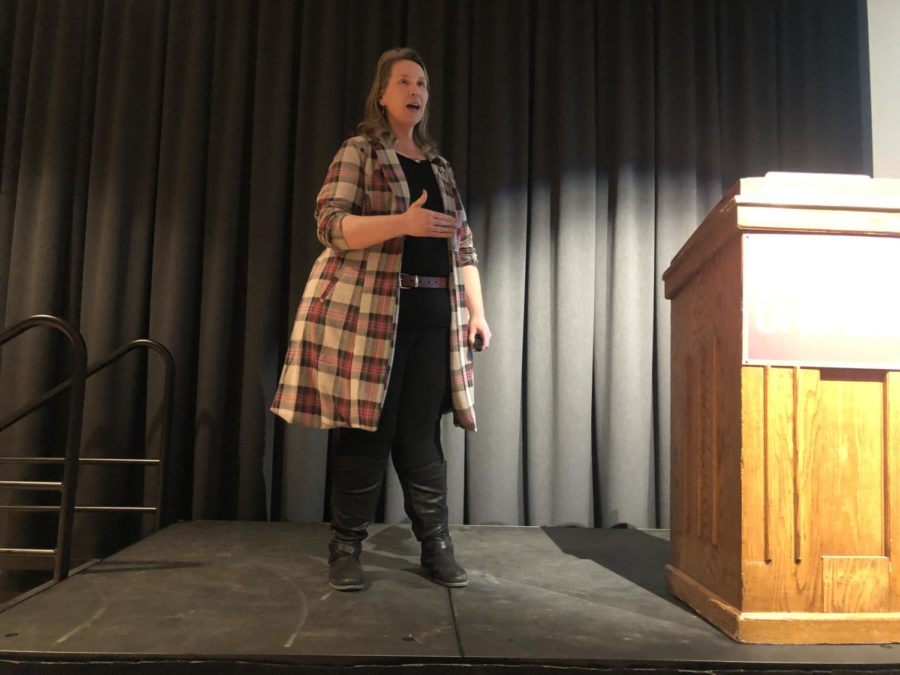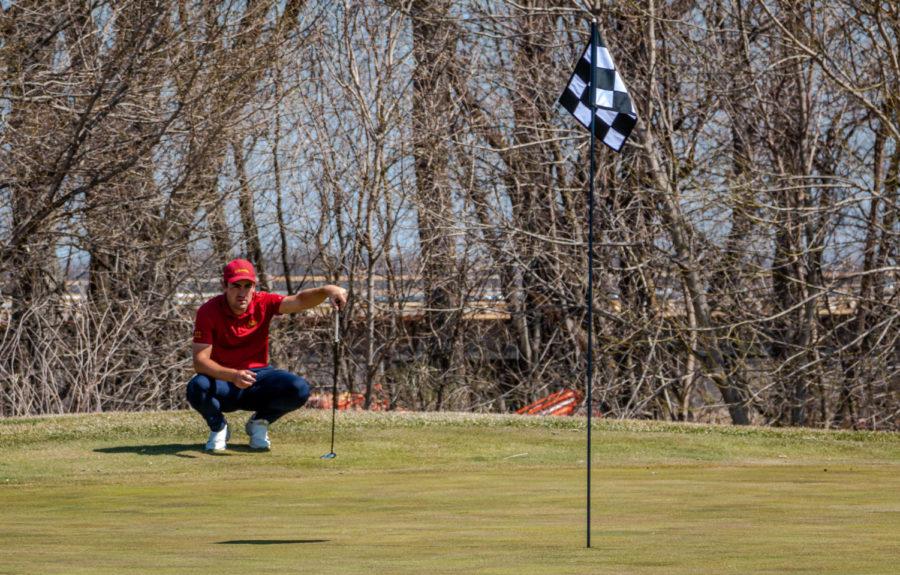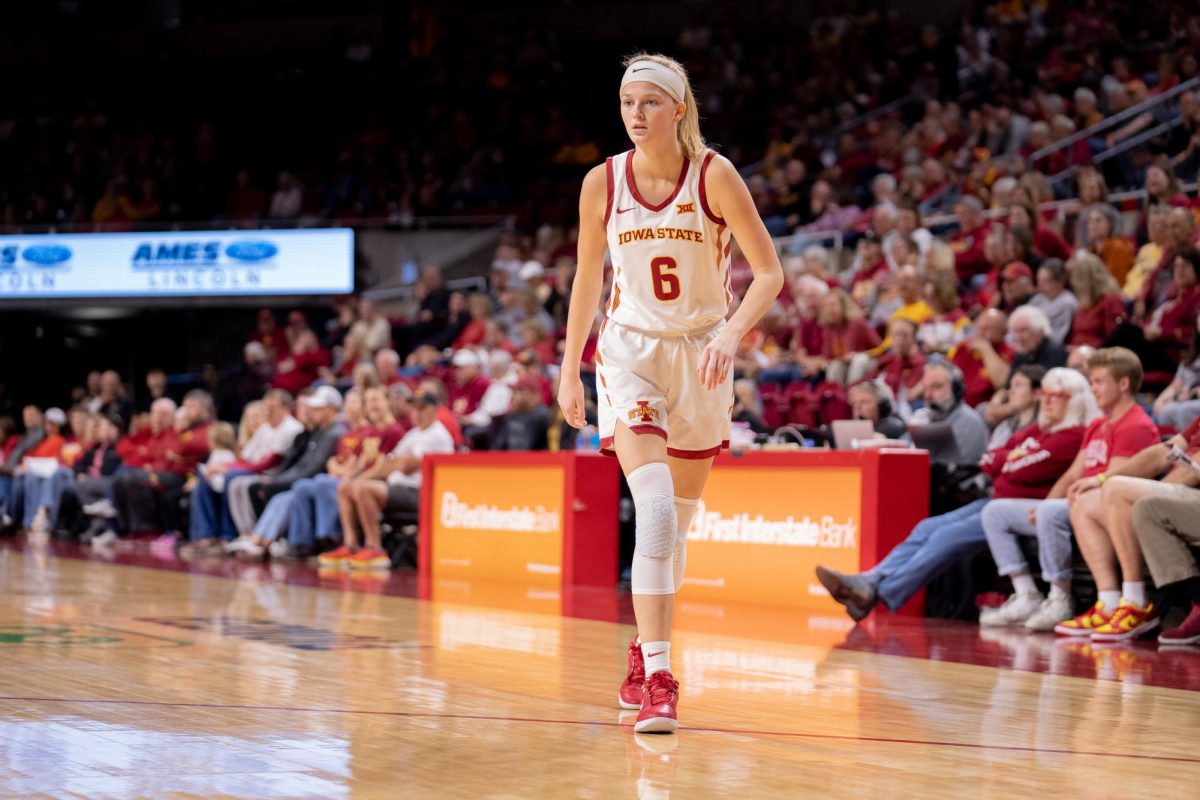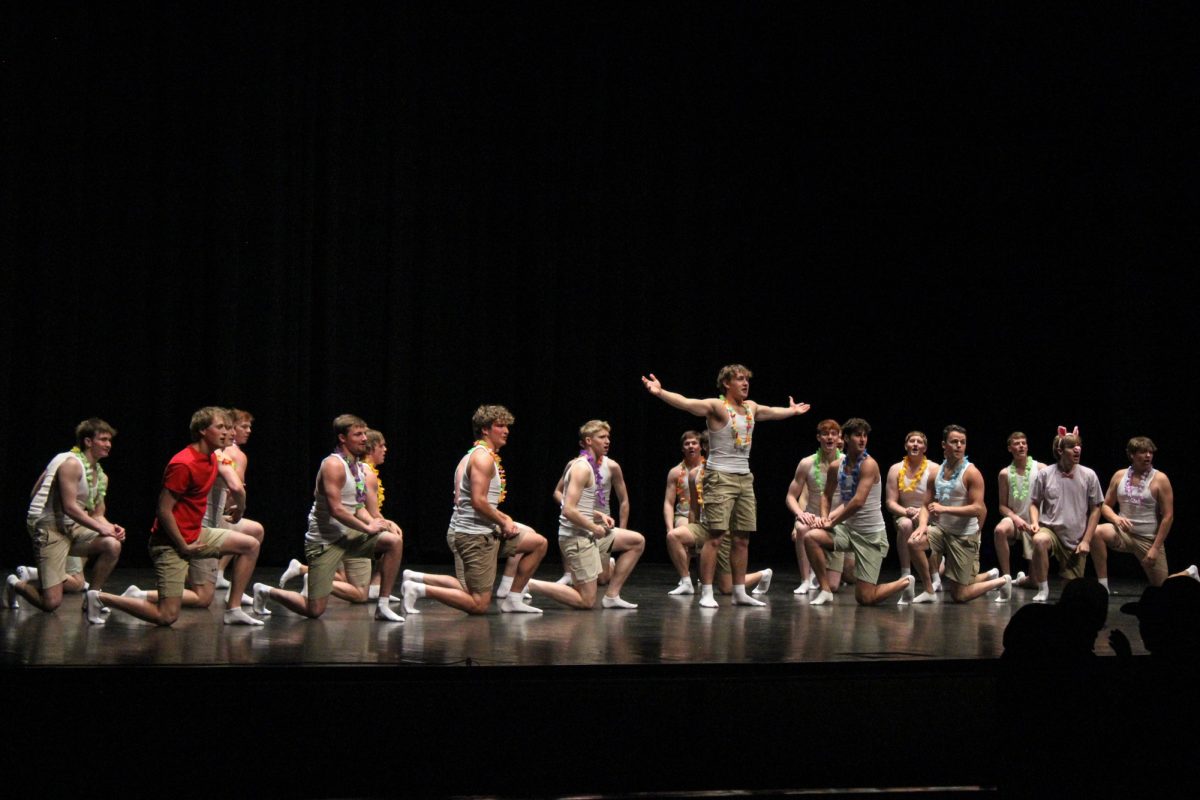Speaker shares story of climbing Kilimanjaro while being overweight
Kara Richardson-Whitely spoke in her lecture “Gorge: My 300-Pound Journey Up Kilimanjaro” Wednesday in the Sun Room of the Memorial Union.
February 27, 2020
Kara Richardson-Whitely spoke in her lecture “Gorge: My 300-Pound Journey Up Kilimanjaro” Wednesday in the Sun Room of the Memorial Union.
Richardson-Whitely is the author of “Fat Woman on the Mountain, Gorge: My 300-Pound Journey Up Kilimanjaro” and a memoir “Weight of Being.”
The speaker shared the story of her life with Binge Eating Disorder and how it affected her for most of her life.
“I was nine years old, and my parents were on the verge of a very difficult divorce,” Richardson-Whitely said. “They would scream at each other back and forth, and the only place that I found safety, refuge and peace was the pantry.”
“Binge eating disorder is a severe, life-threatening and treatable eating disorder characterized by recurrent episodes of eating large quantities of food, often very quickly and to the point of discomfort,” according to the National Eating Disorders website. It also includes a feeling of losing control, shame and distress or guilt after the binge.
After her parents’ divorce, Richardson-Whitely moved to Vermont with her mother, where they faced financial problems that affected Richardson-Whitely and her disorder even more.
“The more I binged, the more my body size grew; the more I was teased, the more I was […] isolated from a culture I so desperately wanted to be part of,” Richardson-Whitely said.
By the age of 12, Richardson-Whitely faced tough problems because of her disorder; however, she explained that she didn’t receive the help she needed.
“Instead of seeing an eating disorder, all people saw, especially healthcare providers and family members, was my weight; and so, it was all about [dieting],” Richardson-Whitely said.
Richardson-Whitely explained the way she lived her life was by avoiding conflict since she wasn’t taught how to deal with the distress in life; this kept going on until she was 30 years old, until she realized that she pushed her goals aside because she would accomplish them once she lost weight. This cycle went on and on until she finally decided to act by starting hiking.
“I was [so] worried about starting because any physical activity, especially if you’re carrying excess weight, is hard, and it feels dangerous and scary and intimidating for someone who’s never tried something before,” Richardson-Whitely said.
As she started to be more active, Richardson-Whitely started to feel emotionally lighter, “so now instead of eating for feelings, I was eating for fuel.”
When she finally decided to climb up Kilimanjaro mountain for the first time. The speaker described how, as the hours went by, the hiking went from lovely to “I’m so done with this mountain,” but as she reached the top, she looked down and saw how far she’ve come.
A year after she climbed Kilimanjaro, she gave birth to her daughter Anna. She described how she started falling back into binge eating during and after her pregnancy.
“How do I live life without binging?” Richardson-Whitely said. “You see, things were super positive when I was climbing and training for Kilimanjaro, but what I wasn’t expecting was the kind of emotional and physical changes that would go on when I was pregnant. I went from being a mountain mama to someone who could barely walk around my living room…instead of being a forgiving moment, like, ‘You’re pregnant, it’s okay, take it easy,’ it was this dead spiral of negative thoughts.”
She described her frustration and shame as she went back into binging while hiding her struggles to her family and friends and dealing with it alone.
Richardson-Whitely wanted to go hiking a second time at Kilimanjaro, but she faced some issues the night before the hiking that included feeling ashamed of not having hiking pants that would fit her and eating a whole bag of sweets that Richardson-Whitely bought for her daughter: “Spoiler alert, second climb wasn’t so great.”
Some time later, she said she began involving herself with other people to participate in community service so she wouldn’t be isolated like when she was pregnant; she also started hiking again. Richardson-Whitely said she started working with mental health professionals, and she learned how to cope with her problems, her self worth, time management and her power.
The third time she climbed the mountain, she said she felt great. Even though some people that were in her group thought she wouldn’t make it to the top of the mountain, she believed in herself. Richardson-Whitely wouldn’t say how it ended because her story will be turned into a movie.
At the end of her presentation, Richardson-Whitely shared “five ways to move mountains.” Each way consisted of encouraging the audience to take the first step of getting better both physically and emotionally, seek for help, and love oneself.
“Always, always bet on yourself, even if no one else does,” Richardson-Whitely said.







